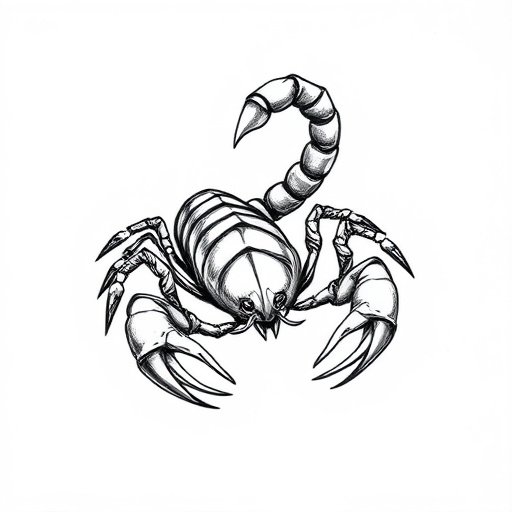Tucson scorpions are most active during the dry, cooler months (late spring to early fall), seeking food and mates at night. Understanding these seasonal patterns is crucial for effective scorpion control Tucson strategies. If an infestation is suspected, contacting specialized Tucson scorpion control professionals can resolve issues promptly. Key resident actions include maintaining a clean, sealed home and regular inspections, while professionals employ eco-friendly methods for optimal prevention and management during peak seasons.
Tucson’s unique climate presents a fascinating dance between scorpions and their environment. Understanding seasonal activity patterns is crucial for both residents and visitors alike, especially with scorpion control in mind. This article delves into the timing and environmental factors that trigger these arachnid creatures’ behavior, highlighting peak activity across seasons. By exploring these insights, we empower Tucson residents with effective strategies to manage and control scorpions during their most active periods.
- When are Tucson Scorpions Most Active?
- Environmental Triggers for Scorpion Seasonal Behavior
- Identifying Peak Scorpion Activity in Different Seasons
- Scorpion Control Strategies for Tucson Residents During Seasonal Peaks
When are Tucson Scorpions Most Active?

Tucson scorpions are most active during the cooler months, typically from late spring through early fall. This period corresponds to the dry season in Arizona, when temperatures are mild and scorpions can easily forage for food and water without the scorching summer heat. During these months, you’re likely to see an increase in scorpion activity around your home, especially at night, as they hunt for insects and other small creatures.
Understanding these seasonal patterns is crucial for anyone considering scorpion control Tucson services. Knowing when scorpions are most active allows for more effective prevention and treatment strategies. If you suspect a scorpion infestation, contacting professionals who specialize in scorpion control Tucson can help mitigate the problem before it becomes a persistent issue.
Environmental Triggers for Scorpion Seasonal Behavior

Scorpion activity in Tucson is heavily influenced by environmental cues, which trigger distinct seasonal behaviors. During the warmer months, typically from late spring to early fall, scorpions are more active due to increased temperatures and longer daylight hours. These conditions prompt them to emerge from their hiding places and become more visible as they search for food and mates. This period often coincides with peak scorpion control requests in Tucson, as residents become more aware of their presence.
Environmental factors play a crucial role in dictating when scorpions are most active. Rainfall also impacts their behavior; after rainfall events, scorpions tend to move towards light sources, which can increase their visibility. Understanding these seasonal patterns is essential for those seeking scorpion control in Tucson. By knowing when and where scorpions are most active, professionals can develop effective strategies to manage and reduce scorpion populations, ensuring a safer environment for both humans and pets.
Identifying Peak Scorpion Activity in Different Seasons

In Tucson, scorpion activity peaks during specific seasons, providing valuable insights for residents seeking effective scorpion control Tucson methods. Spring and early summer are particularly active periods as scorpions emerge from their winter dens in search of food and mates. This time sees an increase in scorpion sightings, with species like the desert striped scorpion being most prominent. The warm temperatures and abundant prey make these months ideal for scorpion proliferation.
As summer transitions into fall, scorpion activity continues but begins to wane. Cooler temperatures signal to scorpions that it’s time to prepare for winter, leading to reduced mobility and fewer sightings. Understanding these seasonal patterns is crucial when implementing scorpion control Tucson strategies, as it allows residents to target their efforts during the most active periods, ensuring more effective prevention and management of these arachnid intruders.
Scorpion Control Strategies for Tucson Residents During Seasonal Peaks

During peak seasons, especially spring and summer, Tucson residents may experience an increase in scorpion activity. This is partly due to the favorable weather conditions that attract scorpions and encourage them to forage for food and mates. Understanding these seasonal patterns can help Tucson residents implement effective scorpion control strategies.
One key approach is to maintain a clean and sealed home environment. Scorpions are attracted to clutter, so regular decluttering and sealing entry points like gaps in doors, windows, and vents can significantly reduce their presence indoors. Additionally, using professional scorpion control services that employ safe and eco-friendly methods, such as those specializing in Tucson scorpion control, can help manage and mitigate scorpion populations effectively. Regular inspections and treatments during peak seasons ensure that any new scorpions are detected early, preventing an infestation from becoming established.
Tucson’s seasonal scorpion activity patterns provide valuable insights for residents looking to implement effective scorpion control strategies. By understanding peak activity periods and environmental triggers, homeowners can proactively address scorpion infestations. During summer months, scorpion populations thrive due to increased moisture from rainfall, while winter brings a temporary lull. Recognizing these cycles allows Tucson residents to employ targeted pest control measures, ensuring a safer and more comfortable living environment. For personalized scorpion control solutions, considering professional services specializing in local species and their behaviors is key to maintaining a pest-free home.
